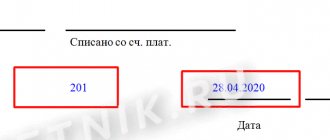The concept of an agency agreement
First, let's talk about what an agency agreement is. The answer to this question can be obtained by studying Chapter 52 of the Civil Code of the Russian Federation.
Agency contract
(according to Article 1005 of the Civil Code of the Russian Federation) is a bilateral paid transaction, within the framework of which:
- one party instructs the other party to perform certain actions of a legal or other nature;
- the other party agrees to perform these actions.
The one who gives the order is called the principal, and the one who must carry out the manipulations is called the agent.
Actions are carried out at the expense of the customer. This rule applies in any situation, since it is directly provided for in Art. 1005 of the Civil Code of the Russian Federation. Even if the agent spends his funds unplanned, the principal will be required to compensate for the expenses. However, the performer, of course, must comply with the principles of good faith and reasonableness.
The parties can agree on whose behalf the contractor will act - on his own or on behalf of the customer. If the first option is chosen, the provisions on the commission should be applied to the transaction, and if the second - on the order (Chapter 51 of the Civil Code of the Russian Federation and Chapter 40 of the Civil Code of the Russian Federation, respectively).
Agency in the field of sales of goods
The conclusion of an agency agreement for the sale of goods implies that the agent will have to sell certain products on behalf of the principal. In this case, the parties may provide for a specific method of executing the transaction, for example, retail or wholesale sales.
The intermediary can act:
- on his own behalf, but at the expense of the customer - in such circumstances, the agent has the right to enter into sales and purchase agreements with buyers;
- on behalf and at the expense of the principal.
Agency in sales has a number of features.
Accounting with an agent
Minus LLC assumed obligations to sell goods to Plus LLC on behalf of the latter. The remuneration is 7% of the cost of goods sold and paid for. During August 2015, Plus LLC shipped products worth 96,000 rubles, VAT 14,644 rubles.
Based on the results of September 2015, Minus LLC provided a report according to which:
- goods sold for the amount of 74,000 rubles. VAT RUB 11,288;
- paid for the goods - 63,000 rubles, VAT 9,610 rubles;
- buyers made advance payments for future deliveries - 32,000 rubles, VAT 4,881 rubles;
- the agent spent his own funds - 230 rubles.
LLC "Minus" will reflect the following transactions:
| Dt | CT | Description | Sum | Document |
| 004 | Acceptance of goods from Plus LLC for storage for the purpose of sale | 96 000 | Transfer and Acceptance Certificate | |
| 62 | 76/2 | Product sales | 74 000 74 000 | Packing list |
| 51 | 62 | Payment for goods sold by customers | 63 000 | Bank statement |
| 51 | 62 Advances received | Receipt of advances against future deliveries | 32 000 | Bank statement |
| 76/2 | 76/3 | Providing an agent report on goods sold and paid for | 63 000 | Agent's report |
| 76/4 | 90/1 | Accrual of agent fees | 4 410 | Agent's report |
| 76/3 | 76/4 | Withholding remuneration from the revenue of Plus LLC | 4 410 | Agent's report |
| 90/3 | 68 VAT | VAT on the remuneration amount | 673 | Agent's report |
| 90/2 | 26 | Write-off of agent costs for September 2015 | 230 | Agent's report |
| 90/9 | 99 | Reflected profit from intermediary operations | 3 507 | Agent's report |
| 76/3 | 51 | Transfer of revenue to Plus LLC minus remuneration | 58 590 | Payment order |
When reflecting transactions under an agreement, the principal and agent should remember to comply with all the necessary requirements for the documents on the basis of which such transactions are carried out.
Essential conditions
Essential terms mean conditions without the agreement of which the transaction cannot be considered concluded. In our case it is:
- subject of the transaction - actions that the agent undertakes to perform on behalf of the principal, namely, to sell the goods;
- designation of on whose behalf the intermediary acts - whether he sells the product on his own behalf, or on behalf of the principal.
When concluding a specific contract, the parties may also recognize a certain condition as essential, even if this is not expressly provided for in the law.
How to draw up a contract correctly?
A standard sample of an agency agreement for the sale of goods has not been approved. This means that any of the parties can prepare their own draft document. It does not matter who exactly becomes the actual author, because the sample on behalf of the principal, as well as the sample on behalf of the agent, must reflect the real will of the signatories and not contradict the current legislation.
The contract must include the following information:
- name of the document, its details, including number, date and place of signing;
- full and abbreviated names of the parties;
- subject of the contract – services for the sale of products;
- product characteristics – name, quantity, assortment, packaging;
- powers of the intermediary;
Results
In order not to make mistakes with transactions under an agency agreement, it is necessary to study its terms - on the basis of which documents to reflect transactions in accounting, what algorithms are used to calculate agency fees, etc.
The main account for recording transactions is 76 “Settlements with various debtors and creditors” in correspondence with accounts 51 (for payments), 68/2 (for VAT accounting), 44 (for registering purchased goods), etc.
You can find more complete information on the topic in ConsultantPlus. Full and free access to the system for 2 days.
Contract structure
The structure of the agency agreement for the sale of goods, as well as its content, is determined by the parties. The entire text of the agreement is divided into sections, subsections and clauses.
The current legislation does not establish a single document template. However, each company can develop its own draft agreement and apply it when concluding relevant transactions with partners.
Here is an approximate structure of an agency agreement for the sale of products that you can use when preparing your document:
- Section 1 – Subject of the agreement.
- Section 2 – Duration of the contract.
- Section 3 – Rights and obligations of the parties.
- Section 4 – Deadline for executing agency orders.
- Section 5 – Submission of Agent's Report.
- Section 6 – Agent's remuneration and payment procedure.
- Section 7 – Responsibility of the Parties.
- Section 8 - Confidentiality.
- Section 9 – Grounds and procedure for termination of the contract.
- Section 10 – Resolution of disputes arising between the parties.
- Section 11 – Force Majeure.
- Section 12 - Other Terms.
- Section 13 – List of attachments (for example, Product range, Schedule).
- Section 14 – Details of the parties.
Next, we will analyze the structure and content of the agreement according to the sections listed above.
Subject of the transaction
As noted above, the subject of the agency agreement is one of the essential terms of the transaction.
In this case, the subject of the contract is the services of an agent for the sale of the principal’s goods. In other words, these are all the actions that the contractor will perform to fulfill the customer’s instructions.
| A separate paragraph should be devoted to the characteristics of the product, namely, indicate the name, quantity, and delivery basis. | The product description can also be reflected in the annex to the main contract - Product range. The annex in such circumstances is an integral part of the contract. |
Contract time
This is not a mandatory condition, because according to paragraph 3 of Art. 1005 of the Civil Code of the Russian Federation, an agency agreement can be concluded either for a certain period or without specifying such a period.
In this section it is also worth specifying from what moment the agreement is valid, for example, from the moment of its signing or from a certain date.
Rights and obligations of partners
Typically, this block is the most voluminous, and this is quite justified, because maximum detail of the rights and obligations of the counterparty allows us to minimize the risk of controversial situations.
Table No. 1. Rights and obligations of the parties to an agency agreement for the sale of goods.
| Rights | Responsibilities | ||
| Principal | Agent | Principal | Agent |
|
|
|
|
Of course, this is not a complete list of possible rights and obligations of partners. The parties can add other positions here if this does not contradict current laws and the essence of the contractual relationship.
Deadline for completing an agent's order
The parties have the right to determine within what time frame the agency order will be executed, namely, to indicate the start date of implementation actions and the date of their completion.
Partners can also establish that the transfer of performance results will be carried out in accordance with a specific calendar plan. In this case, you should fill out the Schedule Schedule application and indicate that it is an integral part of the contract.
Submitting reports
The contract must specify a mechanism according to which the agent will report to the principal on the results of his activities.
Reporting can be prepared:
- regularly – as the transaction is executed;
- one-time - upon termination of cooperation.
The agent also attaches to the report evidence of expenses incurred by him, compensation for which will be provided by the principal.
Remuneration and settlements
In this block, the parties must agree on the method of determining the contractor’s remuneration, for example, in a flat amount or as a percentage of the transaction price. In addition, the payment mechanism should be mentioned - non-cash or cash.
If the contract does not detail the procedure for paying remuneration, then the principal is obliged to pay for the services of the contractor within a week from the date of submission of the report. This rule is provided for in paragraph 3 of Art. 1006 of the Civil Code of the Russian Federation.
Responsibility
If one of the partners has not fulfilled his obligations under the contract, he must compensate the other party for losses, including lost profits. Compensation for damages does not relieve a person from fulfilling his obligations under the contract.
For late transfer of funds received for the principal, the agent pays a penalty and (or) a fine. The same applies to the customer if he delayed payment of the contractor’s remuneration.
The amount of the penalty is determined in the contract as a percentage of the amount of funds not transferred. The fine is usually set at a fixed amount.
Confidentiality
The parties may stipulate that the terms of the agreement, like any other information obtained during cooperation, are considered confidential and are not subject to disclosure.
Accounting for the purchase of goods for the principal, principal or principal
A commission agent, attorney or agent can not only sell the goods of the principal, principal, or principal, but also acquire any valuables for the latter.
In this case, the process of actual receipt of goods to the consignor, principal or principal can be organized in one of the two most commonly used ways:
- the goods arrive at the warehouse of the commission agent, attorney or agent and are subsequently transferred by him to the principal or principal;
- the recipient of the goods is directly the consignor, principal or principal.
In the first case, the receipt of goods and its subsequent transfer to the consignor, principal or principal are reflected in account 004 “Goods accepted for commission” or 002 “Inventory assets accepted for safekeeping.”
According to paragraph 6 of PBU 5/01 “Accounting for inventories”, approved by order of the Ministry of Finance of Russia dated 06/09/2001 No. 44n, fees paid to the intermediary organization through which inventories were acquired are included in the actual costs of acquiring inventories. Consequently, in the accounting of the principal, principal or principal, the amount of remuneration paid to the commission agent, attorney or agent is included in the cost of the purchased goods.








